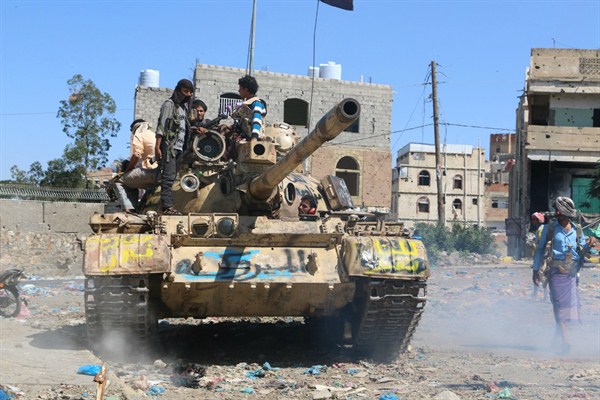Five days of peace talks in Switzerland between Yemen’s warring parties wrapped up Sunday with no breakthroughs, making it increasingly clear that the Arab world’s poorest country is teetering on the brink of semi-permanent chaos. With the deeply polarizing civil war rumbling on, the local branches of both al-Qaida and the self-proclaimed Islamic State are gaining territory and influence.
The war has seen the country fragment, with divisive sectarian rhetoric, hitherto minimal in Yemen, playing an increasingly prominent role. As the Houthis—Zaydi Shiites from the northwest—have advanced in the south and east of the country, areas where the population is predominantly Sunni, regional media has often portrayed them as Iranian puppets. Meanwhile, the Houthis have a tendency to describe any rival force on the ground as being part of al-Qaida in the Arabian Peninsula (AQAP).
This has played into the hands of the actual AQAP, which has positioned itself as the only group capable of protecting the country’s Sunnis from their Shiite rivals. The local branch of the Islamic State, which announced its entrance into the complex Yemeni battlefield with the bombing in March of a Sanaa mosque that killed as many as 130 people, has sought wherever possible to launch attacks that heighten divisions based on sectarian identity.

